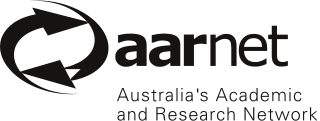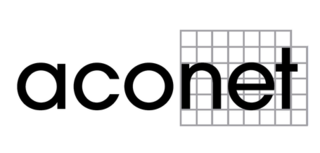
A metropolitan area network (MAN) is a computer network that interconnects users with computer resources in a geographic region of the size of a metropolitan area. The term MAN is applied to the interconnection of local area networks (LANs) in a city into a single larger network which may then also offer efficient connection to a wide area network. The term is also used to describe the interconnection of several LANs in a metropolitan area through the use of point-to-point connections between them.
In computer networking, peering is a voluntary interconnection of administratively separate Internet networks for the purpose of exchanging traffic between the "down-stream" users of each network. Peering is settlement-free, also known as "bill-and-keep" or "sender keeps all", meaning that neither party pays the other in association with the exchange of traffic; instead, each derives and retains revenue from its own customers.

The London Internet Exchange ("LINX") is a mutually governed Internet exchange point (IXP) that provides peering services and public policy representation to network operators. It was founded in 1994 in London. LINX operates IXPs in London, Manchester, Scotland and Wales in the United Kingdom and Northern Virginia in the United States.
Internet exchange points are common grounds of IP networking, allowing participant Internet service providers (ISPs) to exchange data destined for their respective networks. IXPs are generally located at places with preexisting connections to multiple distinct networks, i.e., datacenters, and operate physical infrastructure (switches) to connect their participants. Organizationally, most IXPs are each independent not-for-profit associations of their constituent participating networks. The primary alternative to IXPs is private peering, where ISPs directly connect their networks to each other.

AARNet provides Internet services to the Australian education and research communities and their research partners.

The Amsterdam Internet Exchange (AMS-IX) is an Internet exchange point based in Amsterdam, in the Netherlands. Established in the early 1990s, AMS-IX is a non-profit, neutral and independent peering point.
The MAE was the first Internet Exchange Point (IXP). It began in 1992 with four locations in Washington, D.C., quickly extended to Vienna, Reston, and Ashburn, Virginia; and then subsequently to New York and Miami. Its name stood for "Metropolitan Area Ethernet," and was subsequently backronymed to "Metropolitan Area Exchange, East" upon the establishment of MAE-West in 1994. The MAE predated the National Information Infrastructure plan, which called for the establishment of IXPs throughout the United States. Although it initially had no single central nexus, one eventually formed in the underground parking garage of an office building in Vienna, VA.

The Toronto Internet Exchange Community (TorIX) is a not-for-profit Internet Exchange Point (IXP) located in a carrier hotel at 151 Front Street West, Equinix's TR2 data centre at 45 Parliament Street and 905 King Street West in Toronto, Ontario, Canada. As of March 2021, TorIX has 259 unique autonomous systems representing 285 peer connections and peak traffic rates of 1.344 Tbps, making it the largest IXP in Canada. According to Wikipedia's List of Internet Exchange Points by Size, TorIX is the 16th largest IXP in the world in numbers of peers, and 17th in the world in traffic averages. The Exchange is organized and run by industry professionals in voluntary capacity.

DE-CIX is an operator of carrier- and data-center-neutral Internet Exchanges, with operations in Europe, North America, Africa, the Middle East, India and Southeast Asia. All DE-CIX activities and companies are brought together under the umbrella of the DE-CIX Group AG.

The Seattle Internet Exchange (SIX) is an Internet exchange point in Seattle, USA. Its switch fabric is centered at the Westin Building and extended to KOMO Plaza, Sabey Intergate, and other locations. The SIX is one of the most successful examples of neutral and independent peering points, created as a free exchange point originally sponsored only by donations. The SIX is the most frequently cited model upon which other neutral Internet exchanges are based, and its financial and governance models are often cited as inspiration for other exchanges. It continues to run without any recurring charges to the participants and current major funding comes from one-time 10, 100, and 400 Gbit/s port fees, as well as from voluntary contributions from stakeholders. The SIX is a 501(c)(6) tax-exempt non-profit corporation.
InterLAN is a Romanian Internet Exchange association founded in 2005 in Bucharest, Romania. Since 2008, Interlan is a member of the Euro-IX Organisation and since 2015 a member of RIPE NCC. In October 2014 InterLAN hosted The 25th Euro-IX Forum and in November 2015 the RIPE 71 Meeting.
The London Access Point (LONAP) is a London-based Internet exchange point (IXP) founded in 1997 as a membership organisation and currently has over 200 members, making it the second largest IXP in the UK and around the 15th largest IXP in the world by membership. LONAP currently operates an Arista Networks infrastructure with multiple 100 and 400 Gbit/s links between their sites, specifically:

Gulf Bridge International (GBI) is the Middle East's first privately owned submarine cable system linking the countries bordering the Persian Gulf on a self-healing ring to each other and onward to Europe, Africa and Asia. Gulf Bridge International (GBI), both owns and operates this submarine cable asset as a carrier's carrier as well as offering a full suite of wholesale transmission, IP capacity options, and Enterprise Services. Its main headquarters are located at the Qatar Science & Technology Park in Doha, Qatar.

ACOnet is the name of the national research and education network in Austria. The ACONET association promotes the development and use of that network. ACOnet is not managed and operated by ACONET, but by a unit in the Computing Centre of the University of Vienna that also operates the Vienna Internet Exchange. The University of Vienna represents ACOnet internationally, for example as a member of TERENA and as a participant in the project that funds the European backbone network GÉANT.
DE-CIX New York is a carrier and data center-neutral internet exchange point in the New York/New Jersey metro owned and operated by DE-CIX North America Inc.
France-IX is a Paris-based Internet exchange point (IXP) founded in June 2010 as a membership organisation. As of 21 July 2021 it interconnects more than 496 members, making it the largest IXP in France.
Mumbai Internet Exchange is a subsidiary of the German Internet exchange point (IXP) DE-CIX, founded on 15 August 2014 as Mumbai Convergence Hub as an Open Carrier Neutral Internet Exchange & Peering Hub. As of 30 March 2021 it interconnects more than 375 members, making it the largest IXP in India and surrounding region.
The Internet Exchange Point Of Nigeria (IXPN) is a neutral and not-for-profit Internet exchange point (IXP) founded in 2006 by the Nigerian Communications Commission (NCC) in partnership with the Internet Service Providers Association Of Nigeria (ISPAN). Among other things, IXPN was created to reduce connectivity costs in millions of dollars in offshore internet bandwidth payments, reduce latency from 900 milliseconds to 30 milliseconds for local content, serve as the central point for connecting Higher Educational Institutions (HEIs) towards the development of National Research and Educational Network (NREN). As at April 2022, IXPN is the 5th largest IXP in Africa by number of peers, and 3rd in Africa by traffic according to Packet Clearing House’s IXP directory









